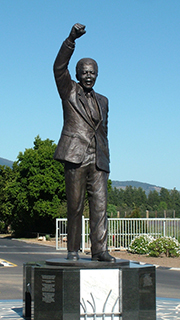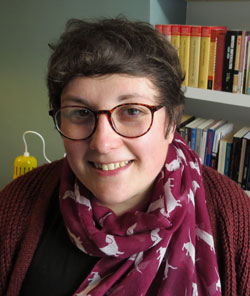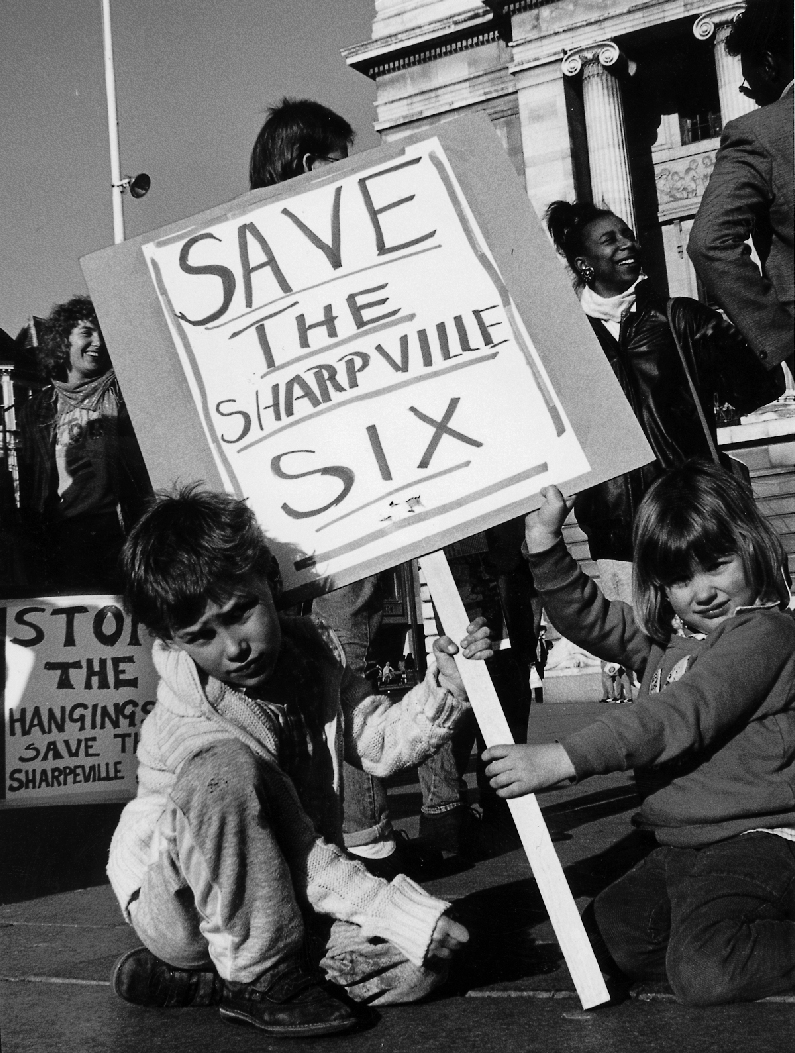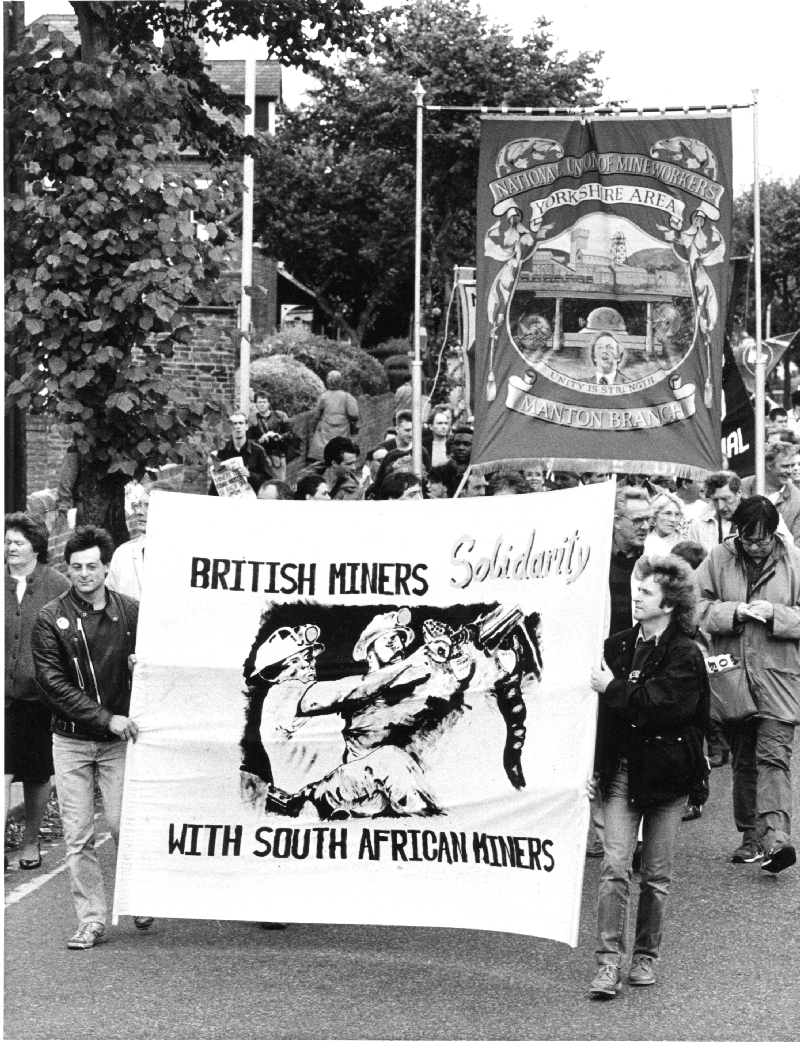Friday, 01 May 2020
Anti-apartheid demo in Nottingham's Old Market Square, April 1988.Photo © John Birdsall Social Issues
Historians at the University of Nottingham are trying to trace people who were involved in the local and regional campaign against racial apartheid in South Africa from the 1960s to the early 1990s.
It’s part of a new research project aiming to fill a significant gap in the recorded history of protest and dissent for which the city and county are globally famous.
This year marks the 30th anniversary of Nelson Mandela’s release from prison – an event that was a defining moment in the victory of the anti-apartheid campaign in South Africa and across the world.
The research team hopes to create a new chapter in local history by revealing the stories of activism that took place in and around Nottingham, and to preserve those stories in an exhibition and archives for future generations.
 Statue of Nelson Mandela
Statue of Nelson Mandela
The British Anti-Apartheid Movement played a crucial role in the global campaign against racial segregation in South Africa for three decades before Mandela’s release and eventual election as President. The British movement had its headquarters in London but was supported by a wide network of regional branches, including Nottingham, which organised protest activity at a local level. These branches also co-operated with local trade unions, political parties, church groups and other voluntary organisations in support of the cause.
 Dr Kate Law, Department of History
Dr Kate Law, Department of History
Dr Kate Law, from the University’s Department of History, said: “When we looked into the archives of the British Anti-Apartheid Movement we found that the activities of many of the regional groups such as Bristol and Leeds were well-documented, but comparatively little was recorded or collected to reflect the campaign activity in the city of Nottingham and its wider county. We thought this needs addressing, particularly given Nottinghamshire’s legacy of famous dissent, from the legend of Robin Hood to the Luddites, the burning of Nottingham Castle over parliamentary reform, through to the miners’ strike marches in Nottingham in the 1980s. We encourage anyone who took part in local anti-apartheid activity to get in touch, to help uncover the role played by people in Nottingham city and county in opposing apartheid.”
 © John Birdsall Social Issues
© John Birdsall Social Issues
One local activist who has offered to contribute is Pete Loewenstein. Pete headed up the University of Nottingham’s Anti-Apartheid student group in the late 1960s and later went on to lead the Movement’s Nottingham branch in the 1980s. His wife and children are pictured with others at a Nottingham Anti-Apartheid demonstration in the Old Market Square in April 1988. Pete said:
“Anti-Apartheid groups in the city and the University of Nottingham played their parts in supporting the people of South Africa and neighbouring states in their struggle for democracy and freedom and against the evil that was Apartheid. Through campaigns, cultural events, fundraising and demonstrations, the Nottingham AAM groups helped organise a consumer boycott of Apartheid goods and sporting activities and of Apartheid-supporting companies including Barclays and Shell. I am very happy to share with this valuable project my memories, documents and photographs of the activities of Nottingham’s AAM groups and would urge anyone else who was involved in this important work to do the same.”
 British miners march in Nottingham to protest against coal imports from South Africa. © Martin Jenkinson Image Library
British miners march in Nottingham to protest against coal imports from South Africa. © Martin Jenkinson Image Library
Research Assistant, Lisa Clarkson, said: “We would like anyone who recalls being involved in any form of activity in Nottingham against apartheid to contact us with a view to sharing their stories. We’d love to see photos and other memorabilia. We also want to capture people’s reflections on the period, how they feel about it now. As Pete Loewenstein has indicated, anti-apartheid activism in Nottingham had diverse strands. It included high-profile boycott campaigns and demonstrations, pickets, marches and rallies. It also encompassed community events to raise funds and material aid. We welcome all stories, no matter how small they may seem.”
Black British solidarity was a vital part of the UK movement against apartheid in South Africa so the team is particularly keen to hear from any members of Nottingham’s black, Asian or other ethnic minority communities who may have stories or opinions to share.
Anyone who is interested in contributing to the project can find more details here, including a participation information sheet, consent form and privacy notice with details about personal data protection. All submissions can be made online.
The researchers will produce an exhibition of the findings to be launched in October 2020 to coincide with Black History Month. The exhibition will open at Nottingham Central Library, then go on to St Ann’s library and selected county libraries. Ultimately, it is hoped that the material will be held in local Nottinghamshire archives, with select items available online on the Forward to Freedom archive www.aamarchives.org.
Story credits
For more information please contact Lisa Clarkson via email lisa.clarkson@nottingham.ac.uk or Emma Rayner, Media Relations Manager for the Faculty of Arts on 0115 951 5793 emma.rayner@nottingham.ac.uk
Notes to editors:
About the University of Nottingham
Ranked 97 in the world and 17th in the UK by the QS World University Rankings, the University of Nottingham is a founding member of Russell Group of research-intensive universities. Studying at the University of Nottingham is a life-changing experience, and we pride ourselves on unlocking the potential of our students. We have a pioneering spirit, expressed in the vision of our founder Sir Jesse Boot, which has seen us lead the way in establishing campuses in China and Malaysia - part of a globally connected network of education, research and industrial engagement.
Nottingham was crowned Sports University of the Year by The Times and Sunday Times Good University Guide 2024 – the third time it has been given the honour since 2018 – and by the Daily Mail University Guide 2024.
The university is among the best universities in the UK for the strength of our research, positioned seventh for research power in the UK according to REF 2021. The birthplace of discoveries such as MRI and ibuprofen, our innovations transform lives and tackle global problems such as sustainable food supplies, ending modern slavery, developing greener transport, and reducing reliance on fossil fuels.
The university is a major employer and industry partner - locally and globally - and our graduates are the third most targeted by the UK's top employers, according to The Graduate Market in 2024 report by High Fliers Research.
We lead the Universities for Nottingham initiative, in partnership with Nottingham Trent University, a pioneering collaboration between the city’s two world-class institutions to improve levels of prosperity, opportunity, sustainability, health and wellbeing for residents in the city and region we are proud to call home.
More news…